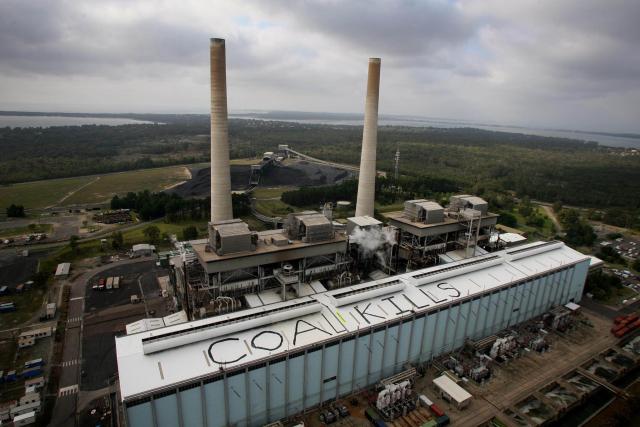This week saw a small step taken towards the energy revolution in Australia as Munmorah, one of the oldest and dirtiest coal power stations in the country, announced its closure.
 Munmorah is near the New South Wales central coast and has been burning black coal since 1967, before Greenpeace was even founded. It had already been mothballed, but its owners, Delta, had hoped to refurbish it and extend its life even further. Greenpeace has been fighting the re-starting of Munmorah on the grounds of high local pollution impacts. Now Munmorah has determined its own fate.
Munmorah is near the New South Wales central coast and has been burning black coal since 1967, before Greenpeace was even founded. It had already been mothballed, but its owners, Delta, had hoped to refurbish it and extend its life even further. Greenpeace has been fighting the re-starting of Munmorah on the grounds of high local pollution impacts. Now Munmorah has determined its own fate.
The timing of the announcement was interesting, made within a few days of the carbon price taking effect. According to Delta, who own Munmorah:
Decreasing energy demand in NSW has created an excess supply situation. Munmorah’s place in the market has been overtaken by newer and more efficient generators and alternative electricity sources.
The station’s ageing infrastructure and high maintenance costs mean that it is not economically viable to operate. The carbon tax further erodes its viability.
Here’s their statement in full.
So while the price on carbon pollution has played a part, this statement also makes clear what we have been saying for some time now: that old and dirty power stations would and should be the first to go as we head to a renewable energy revolution. In Greenpeace’s energy revolution scenario, Munmorah was near the top of the list of power stations to close – encouragingly, our scenario had it closing in 2013, so at least on this score we’re ahead of time!
Munmorah and Greenpeace go way back. In 2007, I was one of 15 Greenpeace activists who were arrested for occupying the power station and painting “Coal Kills” on its roof. This happened just one week out from the “climate change election” of 2007 and for me, was a very significant day. It was the first time I was arrested for taking non-violent direct action and led to me now having a criminal record. Getting to the point of deciding to take illegal action for the cause of tackling climate change took a long time, but it’s a decision I’ve never regretted because that day also showed me the power and importance of taking direct action, and what it says about a person’s passion and integrity when they are prepared to put themselves and their freedom on the line for a cause they believe in.
Learning that Munmorah is now to close makes me feel that much better about the contribution I made on this day, and being part of the downfall of this pollution machine. I hope it beings the same feeling to everyone else who took part in that action, and to everyone who is part of the effort to being an end to the era of dirty coal-fired power.
Onwards!


